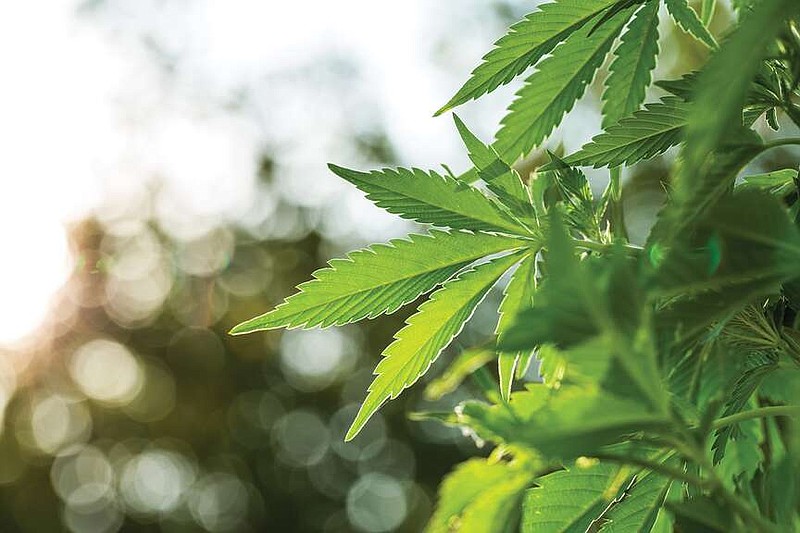The group behind a proposed constitutional amendment to ease access to medical marijuana resubmitted ballot wording for its proposal Monday.
Arkansans for Patient Access is proposing an amendment that would allow nurse practitioners, physicians' assistants and pharmacists -- in addition to doctors -- to sign off on medical cards, and allow patients to grow cannabis at home among other reforms. The popular name for the proposal is the Arkansas Medical Cannabis Amendment of 2024.
Before the signature collection effort can begin, citizen initiated constitutional amendments require a brief summary of what their proposal would do if approved, called a "ballot title." Under Arkansas law, the attorney general has 10 business days to certify, reject or rewrite the ballot.
If the ballot language is approved, the amendment will need a minimum of 90,704 signatures from at least 50 counties turned into the secretary of state's office by July 5.
"The intent of this amendment is to expand access to medical cannabis by qualified patients under the limitations provided in this amendment and to provide that no constitutional amendment be amended or repealed without a vote of the people," according to the text of the amendment.
Last week, the Arkansas Attorney General's office rejected the amendment's ballot wording, saying its language was ambiguous and misleading.
In a letter to Attorney General Tim Griffin on Monday, Erika Gee, an attorney from Wright Lindsey Jennings, which is representing Arkansans for Patient Access, said "we have again revised the proposed amendment to resolve nearly all of the matters you have raised in your opinion."
However, Gee said the group did not agree with all of the office's critiques of their previous ballot title, namely whether the measure properly informs voters about potential effects on existing laws regulating marketing for medical marijuana products.
If approved, the proposed medical marijuana amendment would "repeal and replace" medical marijuana advertising restrictions. The attorney general's office said the previous ballot title did not properly explain to voters the impact it would have on current "advertising and marketing restrictions for dispensaries, processors, and cultivation facilities."
Amendment 98, which voters approved in 2016, legalized medical marijuana. Since then, the General Assembly has amended the amendment several times, including adding restrictions on cultivators' ability to advertise their products. Those advertising restrictions have been challenged in court.
In June, Pulaski County circuit judge Morgan "Chip" Welch declared 27 laws regulating medical marijuana in Arkansas void and unconstitutional, saying the state Legislature had overstepped its authority. However, Welch deferred a ruling on whether the General Assembly's attempt to restrict advertisements for cultivators is constitutional. Welch has scheduled a May hearing for the case.
Gee said the proposed amendment would declare any state constitutional amendment or law that conflicts with the proposed amendment "null and void."
"In short, we believe that the proposed amendment and ballot title clearly explain in a manner that is consistent with the decisions of the Arkansas Supreme Court that inconsistent statutes and existing constitutional provisions will be repealed," Gee wrote
The amendment also would legalize recreational marijuana in Arkansas if the federal government ends its prohibition against the drug. If federal law changes, adults may own up to one ounce of cannabis, and licensed cultivators and dispensaries would be able to legally sell the drug for adult use.
If passed, the amendment would also permit healthcare providers to assess medical marijuana patients through telemedicine, remove the annual renewal requirements for medical certifications, and allow non-Arkansas residents to obtain marijuana registration cards. The amendment would also require all future changes to be approved by the people, not by the General Assembly.
If approved by voters, the amendment would take effect Nov. 15, 2024.
